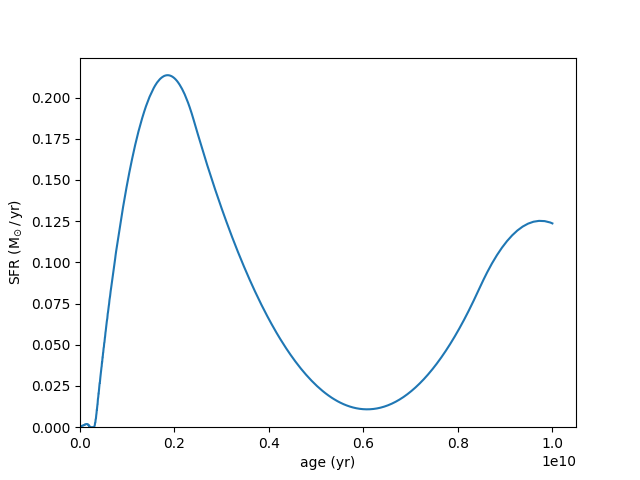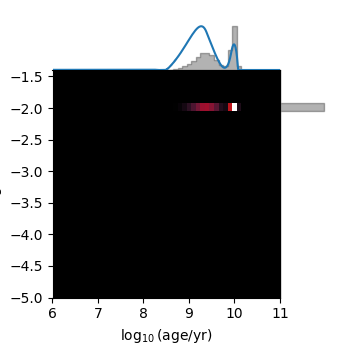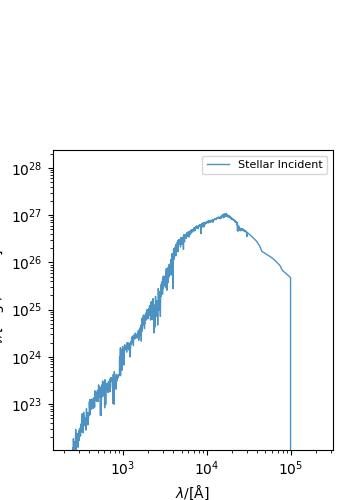Note
Go to the end to download the full example code.
Demonstrate the dense basis approach for describing the SFZH¶
This script demonstrates how to describe a SFZH in the dense basis formalism. It includes the following steps: - Builds and plots a parametric galaxy using a dense basis representation - Creates spectra from this object
----------
SUMMARY OF PARAMETERISED STAR FORMATION HISTORY
<class 'synthesizer.parametric.sf_hist.DenseBasis'>
db_tuple: (9.0, -3, 2, 0.3, 0.8)
redshift: 0.1
median age: 2960.00 Myr
mean age: 4342.18 Myr
----------
Pure stellar spectra
import matplotlib.pyplot as plt
import numpy as np
from unyt import Msun
from synthesizer.emission_models import IncidentEmission
from synthesizer.grid import Grid
from synthesizer.parametric import SFH, Stars, ZDist
from synthesizer.parametric.galaxy import Galaxy
if __name__ == "__main__":
# Define the grid
grid_name = "test_grid"
grid_dir = "../../tests/test_grid/"
grid = Grid(grid_name, grid_dir=grid_dir)
# define the parameters of the star formation and metal enrichment
# histories
sfh_p = (9.0, -3, 2, 0.3, 0.8)
redshift = 0.1
stellar_mass = 1e8 * Msun
# define the functional form of the star formation and metal enrichment
# histories
sfh = SFH.DenseBasis(db_tuple=sfh_p, redshift=0.1)
print(sfh) # print sfh summary
sfh.plot()
# Constant metallicity
metal_dist = ZDist.DeltaConstant(log10metallicity=-2.0)
# get the 2D star formation and metal enrichment history for the given SPS
# grid.
stars = Stars(
grid.log10age,
grid.metallicity,
sf_hist=sfh,
metal_dist=metal_dist,
initial_mass=stellar_mass,
)
stars.plot_sfzh()
time = np.linspace(0, 10, 100)
plt.plot(time, sfh._sfr(10**time))
plt.show()
# create a galaxy object
galaxy = Galaxy(stars)
# generate pure stellar spectra alone
model = IncidentEmission(grid)
galaxy.stars.get_spectra(model)
print("Pure stellar spectra")
galaxy.plot_spectra(
show=True, combined_spectra=False, stellar_spectra=True
)
Total running time of the script: (0 minutes 2.085 seconds)


